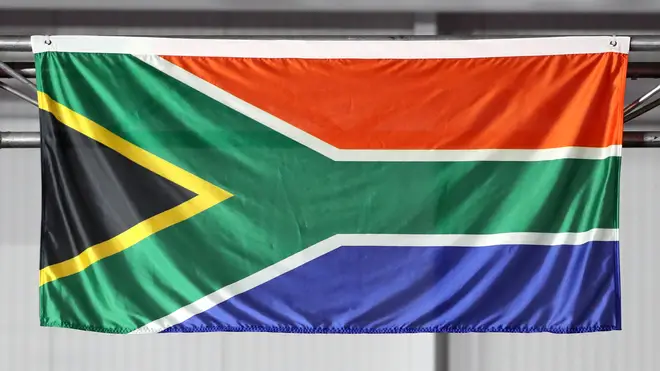
Tonight with Andrew Marr 6pm - 7pm
1 November 2020, 16:14

John Steenhuizen will take the reins of the Democratic Alliance.
South Africa’s largest opposition party, the Democratic Alliance, has elected a white leader, a move some analysts warn may cost it support from black voters.
The party, which attracted just over 20% of the votes and won 89 parliamentary seats in last year’s national poll, on Sunday elected John Steenhuizen to lead the party.
The party’s first black leader Mmusi Maimane resigned last year, claiming angrily that he had been hampered by those who wanted to marginalise black leaders and preserve the party for South Africa’s white minority.
Race relations continue to haunt the Democratic Alliance, which was founded as a merger between predominantly white liberal political parties after the fall in 1994 of South Africa’s oppressive system of white minority rule, known as Apartheid.
Thank you Democrats for putting your trust in me! Let’s fix South Africa! 🇿🇦 #DACongress pic.twitter.com/V9mZttTedn
— John Steenhuisen MP (@jsteenhuisen) November 1, 2020
Although the party has attracted black voters in recent years, it has struggled to shake off its image as a party led by whites and most interested in issues affecting the country’s white minority, who make up 10% of the country’s 60 million people.
The Democratic Alliance lost some of its traditional white voters to the more right-wing Freedom Front Plus party in the 2019 elections.
Since then it has sought to avoid alienating whites by avoiding strong positions on issues like redistribution of land and economic redress for the black majority.
Mr Steenhuizen’s main challenger for the party’s leadership was Mbali Ntuli, a black woman who stood for the position despite indications that Mr Steenhuizen was supported by the party’s top hierarchy, including its divisive former leader Helen Zille.
Ms Zille was elected on Sunday to chair the party’s federal council.
The election of Mr Steenhuizen as leader of the Democratic Alliance was a reaffirmation that the party will pursue minority politics instead of challenging the ANC nationally, said analyst Ralph Mathekga, of the University of the Western Cape.
“Instead of campaigning against crime and murder nationally, they will be campaigning against farm killings which they find important because they affect white farmers,” he said.
Mr Mathekga said the Democratic Alliance is expected to lose many black voters as it appears to be more interested in keeping its traditional white support instead of attracting new black voters.
“That is certainly not a growth strategy, but a consolidation of their position as a white minority party,” said Mr Mathekga.